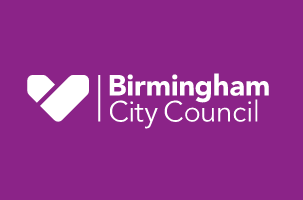Birmingham City Council is one of 13 local authorities to receive a funding boost from a £5m Government funding pot to help councils tackle issues affecting their communities, announced this week.
Birmingham has been chosen as a pilot place for the Partnerships for People and Place programme, run by the Department for Levelling Up, Housing and Communities.
Each project will receive between £150,000 and £350,000 over a two-year period from the HM Treasury’s Shared Outcomes Fund.
This funding will help to strengthen the council’s partnership working across the city to link local young people to job opportunities and to help businesses to fill their vacancies.
This project will focus on tackling our long-term youth unemployment challenge exacerbated by Covid-19, which is a priority for Birmingham City Council and key to the city’s economic and community recovery.
It will help the council stimulate demand from employers for local workers, through linking employment support to specific business and job opportunities, capitalising on planned and existing investment, jobs creation, and recruitment demand including:
- Reopening of hospitality and retail as sectors
- Birmingham 2022 Commonwealth Games
- Department for Levelling Up, Housing and Communities opening in Wolverhampton
- NHS recruitment, including new Midlands Metropolitan University Hospital in Smethwick, and
- Sector opportunities as set out in the March 2021 Mayoral Jobs Plan
Cllr Ian Ward, Leader of Birmingham City Council, said: “I am pleased that Birmingham City Council has been chosen as a pilot place for the Partnerships for People and Place programme, run by the Department for Levelling Up, Housing and Communities.
“We welcome this funding, which will help to strengthen the council’s partnership working across the city to link local young people to job opportunities and to help businesses to fill their vacancies.
“This is an important step towards joined up working with our partners to tackle youth unemployment in our city.”
As the youngest city in Europe, almost 40 per cent of Birmingham’s population aged under 25, urgent work needs to be done to prevent a ‘crisis cohort’ of young people facing long-term damage to their careers and lives.
Birmingham’s project will focus on better joining up and efficiency of the existing programmes into a locally designed scheme of employment support where we will channel resource to link local young people to job opportunities, whilst also designing in new elements which will enable more young people to access jobs.














